Unit 3 The Internet Discovering Useful Structures 课件(共30张PPT) -人教版(2019)必修第二册
文档属性
| 名称 | Unit 3 The Internet Discovering Useful Structures 课件(共30张PPT) -人教版(2019)必修第二册 | 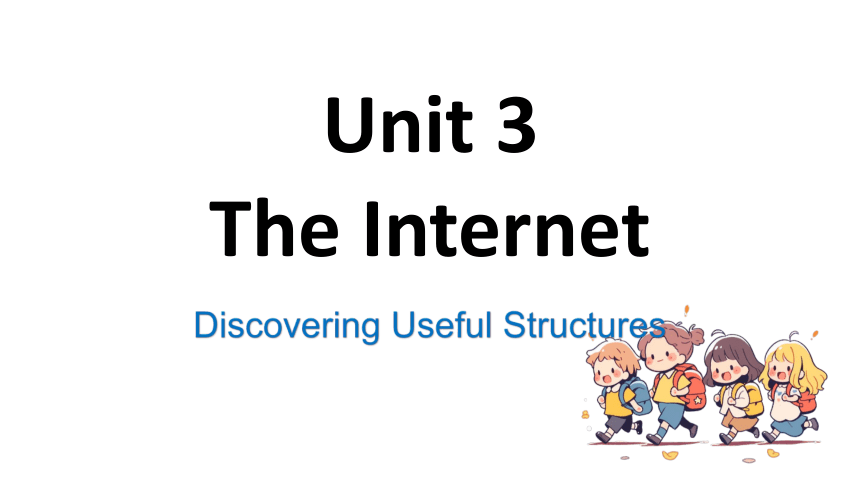 | |
| 格式 | pptx | ||
| 文件大小 | 2.7MB | ||
| 资源类型 | 教案 | ||
| 版本资源 | 人教版(2019) | ||
| 科目 | 英语 | ||
| 更新时间 | 2025-07-29 17:11:07 | ||
图片预览

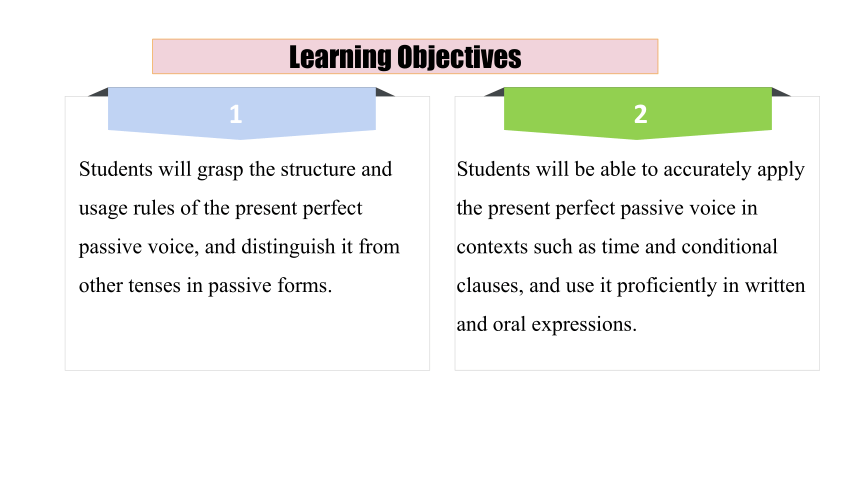
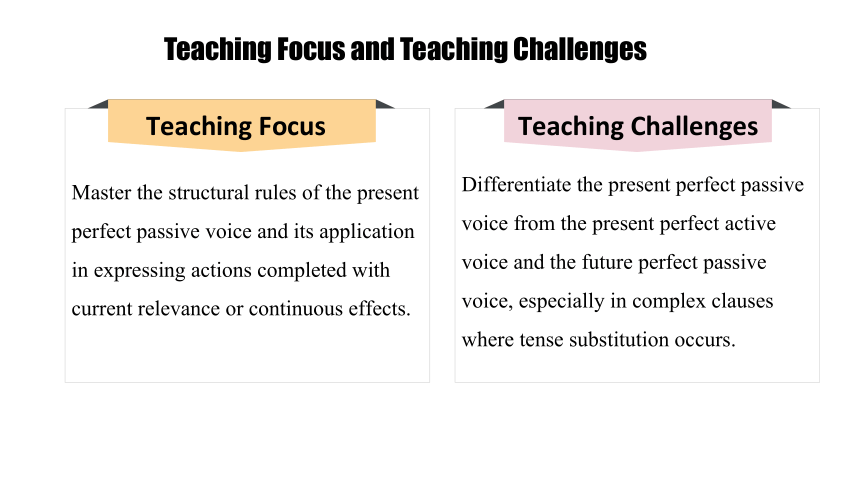
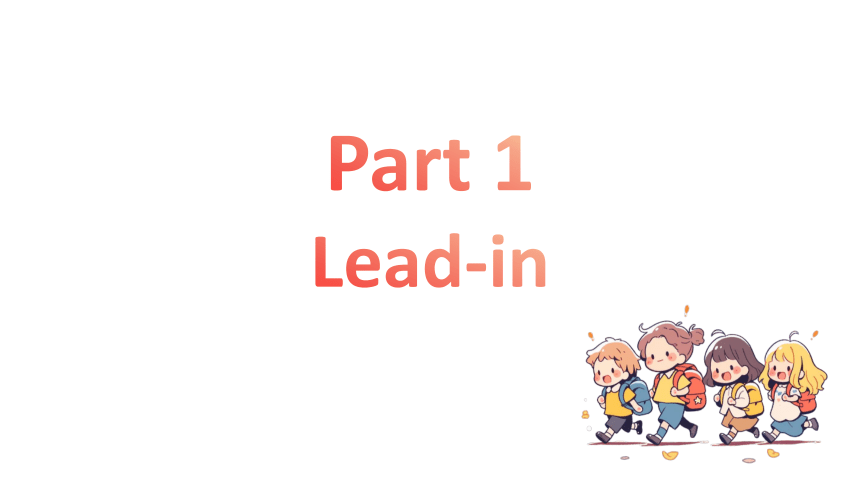
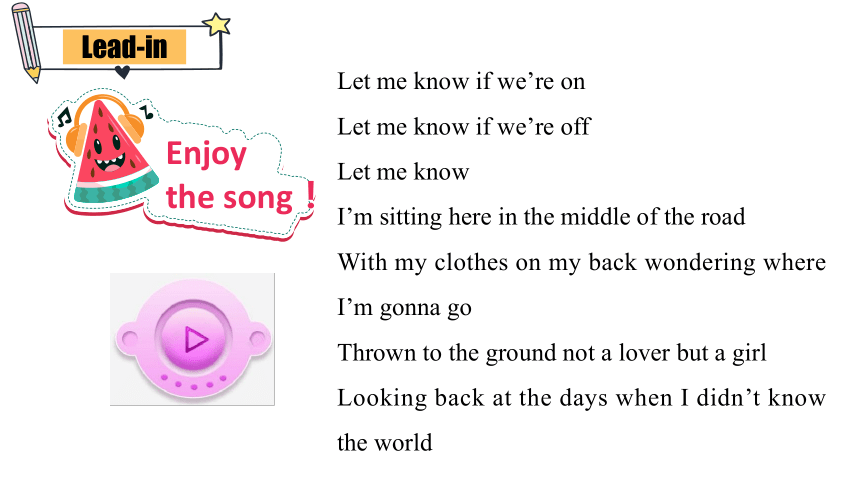
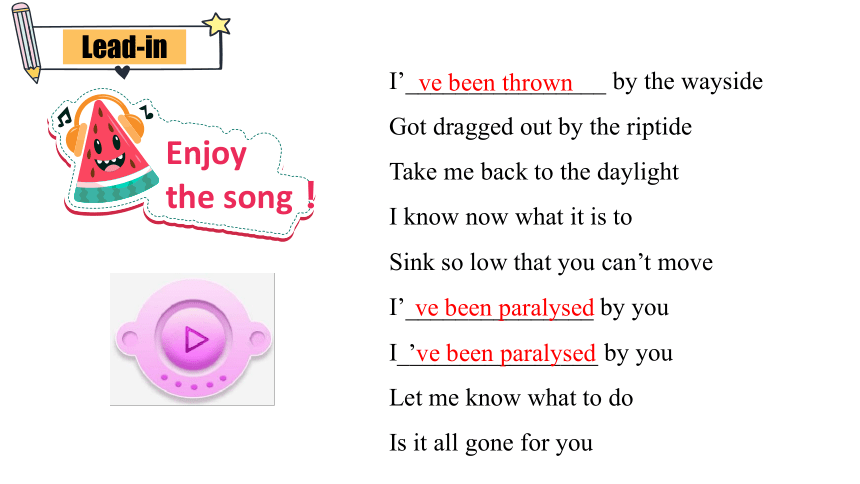
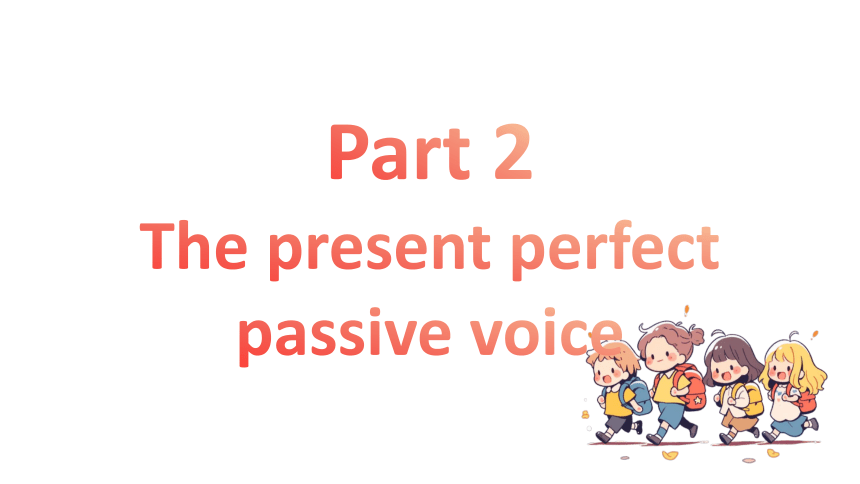
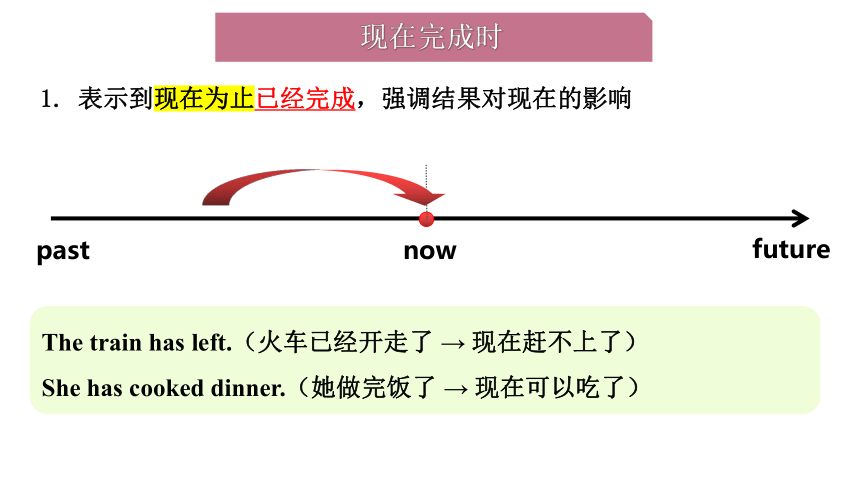
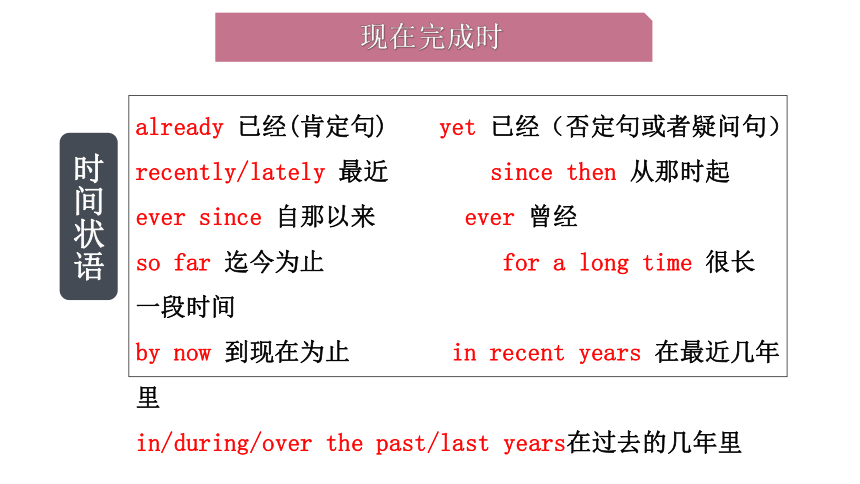
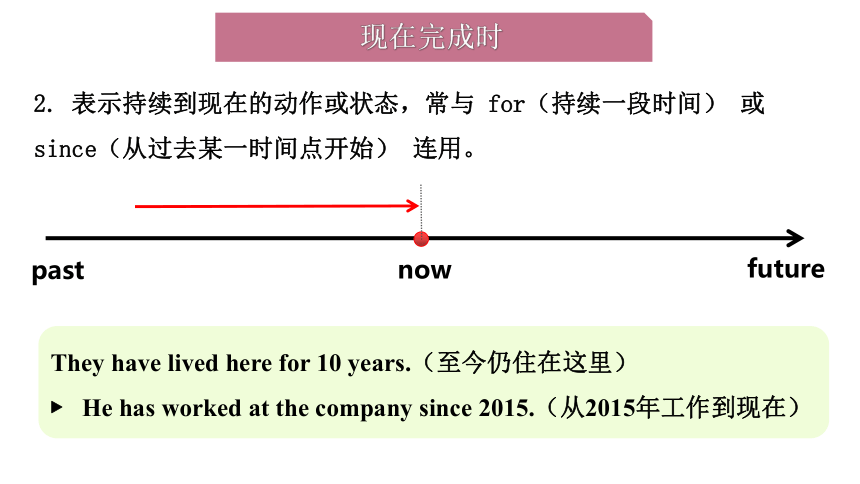
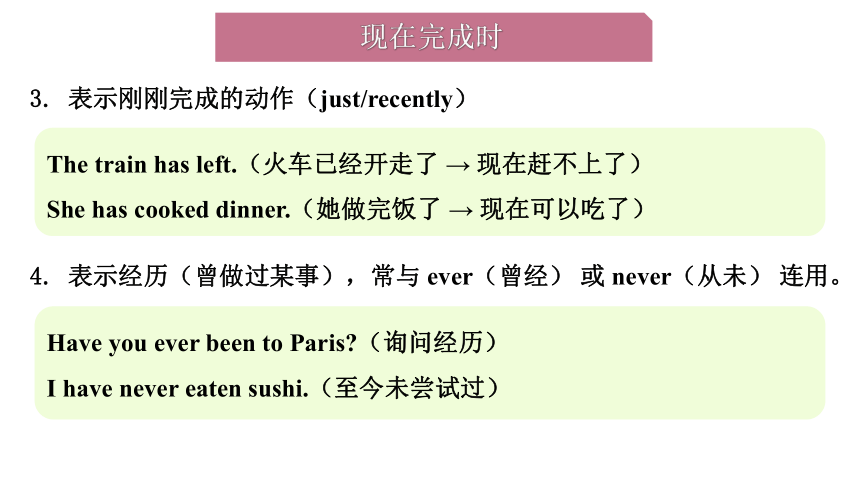
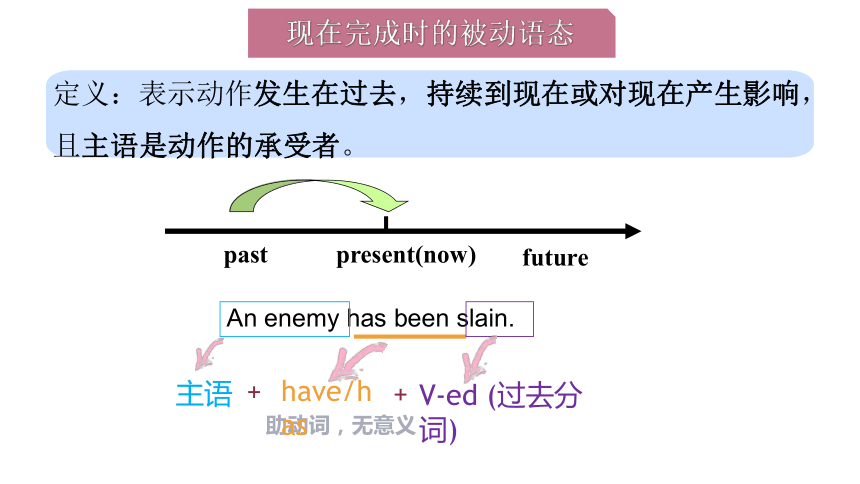
文档简介
(共30张PPT)
Unit 3
The Internet
Discovering Useful Structures
1
Students will grasp the structure and usage rules of the present perfect passive voice, and distinguish it from other tenses in passive forms.
2
Students will be able to accurately apply the present perfect passive voice in contexts such as time and conditional clauses, and use it proficiently in written and oral expressions.
Learning Objectives
Teaching Focus
Master the structural rules of the present perfect passive voice and its application in expressing actions completed with current relevance or continuous effects.
Teaching Challenges
Differentiate the present perfect passive voice from the present perfect active voice and the future perfect passive voice, especially in complex clauses where tense substitution occurs.
Teaching Focus and Teaching Challenges
Part 1
Lead-in
Lead-in
Enjoy the song!
Let me know if we’re on
Let me know if we’re off
Let me know
I’m sitting here in the middle of the road
With my clothes on my back wondering where I’m gonna go
Thrown to the ground not a lover but a girl
Looking back at the days when I didn’t know the world
Lead-in
Enjoy the song!
I’________________ by the wayside
Got dragged out by the riptide
Take me back to the daylight
I know now what it is to
Sink so low that you can’t move
I’_______________ by you
I________________ by you
Let me know what to do
Is it all gone for you
ve been thrown
ve been paralysed
’ve been paralysed
Part 2
The present perfect passive voice
现在完成时
1. 表示到现在为止已经完成,强调结果对现在的影响
The train has left.(火车已经开走了 → 现在赶不上了)
She has cooked dinner.(她做完饭了 → 现在可以吃了)
past
future
now
现在完成时
时间状语
already 已经(肯定句) yet 已经(否定句或者疑问句)
recently/lately 最近 since then 从那时起
ever since 自那以来 ever 曾经
so far 迄今为止 for a long time 很长一段时间
by now 到现在为止 in recent years 在最近几年里
in/during/over the past/last years在过去的几年里
现在完成时
2. 表示持续到现在的动作或状态,常与 for(持续一段时间) 或 since(从过去某一时间点开始) 连用。
They have lived here for 10 years.(至今仍住在这里)
He has worked at the company since 2015.(从2015年工作到现在)
past
future
now
现在完成时
3. 表示刚刚完成的动作(just/recently)
The train has left.(火车已经开走了 → 现在赶不上了)
She has cooked dinner.(她做完饭了 → 现在可以吃了)
4. 表示经历(曾做过某事),常与 ever(曾经) 或 never(从未) 连用。
Have you ever been to Paris (询问经历)
I have never eaten sushi.(至今未尝试过)
定义:表示动作发生在过去,持续到现在或对现在产生影响,且主语是动作的承受者。
现在完成时的被动语态
present(now)
future
past
主语
An enemy has been slain.
助动词,无意义
V-ed (过去分词)
+
have/has
+
现在完成时的被动语态
现在完成时的被动语态的不同形式
肯定式 主语+have/has been done...
否定式 主语+have/has not been done...
一般疑问式 Have/Has+主语+been done...?
特殊疑问式 特殊疑问词+have/has+主语+been done...?
现在完成时的被动语态的构成have/has + been + done
现在完成时的被动语态
Read the pairs of sentences. Underline and compare the different verb forms.
Jan’s life has been greatly improved by the Internet.
The Internet has greatly improved Jan’s life.
People have written much about the wonders of the World Wide Web.
Much has been written about the wonders of the World Wide Web.
主动
主动
被动
被动
现在完成时的被动语态
Change the sentences into the present perfect passive voice.
The software has been downloaded to help my phone battery last longer.
2. Someone has lost an identity card.
An identity card has been lost.
1. I have downloaded the software to help my phone battery last longer.
现在完成时的被动语态
Change the sentences into the present perfect passive voice.
Has the button been pressed yet to copy the file
5. Has anyone made a comment about the online database
Has a comment been made about the online database
4. Have you pressed the button yet to copy the file
3. Have you confirmed the Wi-Fi password
Has the Wi-Fi password been confirmed
现在完成时的被动语态核心用法
① 现在完成时的被动语态同它的主动语态一样,强调过去的动作对现在造成的影响或结果。常与 already, yet, just, never, ever 等副词连用。
The new library has been built.
(图书馆已建成,现在可以使用)
The report has already been submitted.
(报告已提交,现在无需再处理)
现在进行时的被动语态的基本用法
② 表示一个被动的动作或状态从过去开始一直持续到现在,常与 for + 时间段 或 since + 时间点 连用(此时动词需为延续性动词),或用于“How long... ”句型中。
The machine has been used for five years.
(机器已使用五年,仍在使用中)
The house has been owned by the family since 2000.(房子自 2000 年起归该家庭所有)
现在进行时的被动语态的基本用法
③用在时间或条件状语从句中,表示将来已完成的动作,即用现在完成时的被动语态代替将来完成时的被动语态。
When the report has been submitted, we can start the next project.
(等报告被提交后,我们就可以开始下一个项目。)
If the package has been delivered by 3 PM, I will sign for it.
(如果包裹在下午 3 点前被送达,我会签收。)
注意
1. 不可用于被动语态的动词:
静态动词(表示状态、情感或所属关系):have(有), belong, love, know, seem 等;不及物动词(无宾语):arrive, happen, die, occur 等。
My pen has been belonged to me for years.
The accident has been happened recently.
注意
2. 与现在进行时被动语态的区别
时态 结构 含义 例句
现在完成时被动 have/has been done 动作已完成,对现在有影响 The cake has been eaten.(蛋糕已被吃完)
现在进行时被动 am/is/are being done 动作正在进行中 The cake is being eaten.(蛋糕正在被吃)
注意
3. 与一般过去时的被动语态的区别:
一般过去时的被动语态所表示的动作或状态与现在的情况没有联系,而现在完成时的被动语态则强调与现在的情况有联系。
The museum was opened to the public last year.
去年这家博物馆向公众开放。(说明动作发生于过去)
The museum has been opened to the public.
这家博物馆已向公众开放。(说明动作发生于过去,但对现在有影响,即现在公园已经开放了)
注意
4. 特殊短语/动词的被动语态:
动词 + 介词 / 副词(如 look after, take care of):介词 / 副词不可省略;含双宾语的动词(如 give, send):可将“间接宾语(人)或直接宾语(物)”变为主语。
The old man has been looked after by his son.(不可省略 after)
She has been given a prize.(= A prize has been given to her.)
注意
5. 带有复合宾语的动词
变为被动语态时,只能将宾语变为主语,原来的宾补改为主语补足语。注意:原来作宾补的省略to的不定式在被动语态中要用带to的不定式。
I have told them to help you.→They have been told to help you.
The manager has never made the employees work day and night.
→The employees have never been made to work day and night.
Summary
现在完成时的被动语态
含义
结构
表示动作发生在过去,持续到现在或对现在产生影响,且主语是动作的承受者。
have/has been done
形式
肯定式
否定式
疑问式
have/has been done
have/has not been done
一般疑问:Have/Has+主语+been done
特殊疑问:特殊疑问词+have/has+主语+been done
用法
强调过去的动作对现在造成的影响或结果
表示开始于过去并可能持续下去的被动动作
用在时间或条件状语从句中,表示将来已完成的动作
Part 3
Exercise
1. Over the past four years, more than $10 million ________________
(spend) carrying out the project.
2. Many buildings in this city __________________ (not, build) yet.
3. I like these English songs and they ______________ (teach) many times on the radio.
4. All the preparations for the task
__________________ (complete), and we’re ready to start.
5. Now all the trees ______________ (plant) by students.
have been taught
have been completed
have not been built
have been planted
have been spent
请将下列句子转换成相应的被动语态。
1. We have not solved the problem yet.
The problem ______________ by us yet.
2. Someone has turned off the light.
The light ___________________ by someone.
3. The head teacher has introduced the newcomer to my
classmates.
The newcomer ___________________ to my classmates.
has been introduced
4. Has he translated the text into English
_____ the text _______________ into English
h_a_s_b_e_e_n__turned__o_f_f
been translated
Has
h_a_s_b_e_e_n__solved
Homework
1. Summarise what we have learnt in this lesson;
2. Prepare for the next lesson
See you next time!
Unit 3
The Internet
Discovering Useful Structures
1
Students will grasp the structure and usage rules of the present perfect passive voice, and distinguish it from other tenses in passive forms.
2
Students will be able to accurately apply the present perfect passive voice in contexts such as time and conditional clauses, and use it proficiently in written and oral expressions.
Learning Objectives
Teaching Focus
Master the structural rules of the present perfect passive voice and its application in expressing actions completed with current relevance or continuous effects.
Teaching Challenges
Differentiate the present perfect passive voice from the present perfect active voice and the future perfect passive voice, especially in complex clauses where tense substitution occurs.
Teaching Focus and Teaching Challenges
Part 1
Lead-in
Lead-in
Enjoy the song!
Let me know if we’re on
Let me know if we’re off
Let me know
I’m sitting here in the middle of the road
With my clothes on my back wondering where I’m gonna go
Thrown to the ground not a lover but a girl
Looking back at the days when I didn’t know the world
Lead-in
Enjoy the song!
I’________________ by the wayside
Got dragged out by the riptide
Take me back to the daylight
I know now what it is to
Sink so low that you can’t move
I’_______________ by you
I________________ by you
Let me know what to do
Is it all gone for you
ve been thrown
ve been paralysed
’ve been paralysed
Part 2
The present perfect passive voice
现在完成时
1. 表示到现在为止已经完成,强调结果对现在的影响
The train has left.(火车已经开走了 → 现在赶不上了)
She has cooked dinner.(她做完饭了 → 现在可以吃了)
past
future
now
现在完成时
时间状语
already 已经(肯定句) yet 已经(否定句或者疑问句)
recently/lately 最近 since then 从那时起
ever since 自那以来 ever 曾经
so far 迄今为止 for a long time 很长一段时间
by now 到现在为止 in recent years 在最近几年里
in/during/over the past/last years在过去的几年里
现在完成时
2. 表示持续到现在的动作或状态,常与 for(持续一段时间) 或 since(从过去某一时间点开始) 连用。
They have lived here for 10 years.(至今仍住在这里)
He has worked at the company since 2015.(从2015年工作到现在)
past
future
now
现在完成时
3. 表示刚刚完成的动作(just/recently)
The train has left.(火车已经开走了 → 现在赶不上了)
She has cooked dinner.(她做完饭了 → 现在可以吃了)
4. 表示经历(曾做过某事),常与 ever(曾经) 或 never(从未) 连用。
Have you ever been to Paris (询问经历)
I have never eaten sushi.(至今未尝试过)
定义:表示动作发生在过去,持续到现在或对现在产生影响,且主语是动作的承受者。
现在完成时的被动语态
present(now)
future
past
主语
An enemy has been slain.
助动词,无意义
V-ed (过去分词)
+
have/has
+
现在完成时的被动语态
现在完成时的被动语态的不同形式
肯定式 主语+have/has been done...
否定式 主语+have/has not been done...
一般疑问式 Have/Has+主语+been done...?
特殊疑问式 特殊疑问词+have/has+主语+been done...?
现在完成时的被动语态的构成have/has + been + done
现在完成时的被动语态
Read the pairs of sentences. Underline and compare the different verb forms.
Jan’s life has been greatly improved by the Internet.
The Internet has greatly improved Jan’s life.
People have written much about the wonders of the World Wide Web.
Much has been written about the wonders of the World Wide Web.
主动
主动
被动
被动
现在完成时的被动语态
Change the sentences into the present perfect passive voice.
The software has been downloaded to help my phone battery last longer.
2. Someone has lost an identity card.
An identity card has been lost.
1. I have downloaded the software to help my phone battery last longer.
现在完成时的被动语态
Change the sentences into the present perfect passive voice.
Has the button been pressed yet to copy the file
5. Has anyone made a comment about the online database
Has a comment been made about the online database
4. Have you pressed the button yet to copy the file
3. Have you confirmed the Wi-Fi password
Has the Wi-Fi password been confirmed
现在完成时的被动语态核心用法
① 现在完成时的被动语态同它的主动语态一样,强调过去的动作对现在造成的影响或结果。常与 already, yet, just, never, ever 等副词连用。
The new library has been built.
(图书馆已建成,现在可以使用)
The report has already been submitted.
(报告已提交,现在无需再处理)
现在进行时的被动语态的基本用法
② 表示一个被动的动作或状态从过去开始一直持续到现在,常与 for + 时间段 或 since + 时间点 连用(此时动词需为延续性动词),或用于“How long... ”句型中。
The machine has been used for five years.
(机器已使用五年,仍在使用中)
The house has been owned by the family since 2000.(房子自 2000 年起归该家庭所有)
现在进行时的被动语态的基本用法
③用在时间或条件状语从句中,表示将来已完成的动作,即用现在完成时的被动语态代替将来完成时的被动语态。
When the report has been submitted, we can start the next project.
(等报告被提交后,我们就可以开始下一个项目。)
If the package has been delivered by 3 PM, I will sign for it.
(如果包裹在下午 3 点前被送达,我会签收。)
注意
1. 不可用于被动语态的动词:
静态动词(表示状态、情感或所属关系):have(有), belong, love, know, seem 等;不及物动词(无宾语):arrive, happen, die, occur 等。
My pen has been belonged to me for years.
The accident has been happened recently.
注意
2. 与现在进行时被动语态的区别
时态 结构 含义 例句
现在完成时被动 have/has been done 动作已完成,对现在有影响 The cake has been eaten.(蛋糕已被吃完)
现在进行时被动 am/is/are being done 动作正在进行中 The cake is being eaten.(蛋糕正在被吃)
注意
3. 与一般过去时的被动语态的区别:
一般过去时的被动语态所表示的动作或状态与现在的情况没有联系,而现在完成时的被动语态则强调与现在的情况有联系。
The museum was opened to the public last year.
去年这家博物馆向公众开放。(说明动作发生于过去)
The museum has been opened to the public.
这家博物馆已向公众开放。(说明动作发生于过去,但对现在有影响,即现在公园已经开放了)
注意
4. 特殊短语/动词的被动语态:
动词 + 介词 / 副词(如 look after, take care of):介词 / 副词不可省略;含双宾语的动词(如 give, send):可将“间接宾语(人)或直接宾语(物)”变为主语。
The old man has been looked after by his son.(不可省略 after)
She has been given a prize.(= A prize has been given to her.)
注意
5. 带有复合宾语的动词
变为被动语态时,只能将宾语变为主语,原来的宾补改为主语补足语。注意:原来作宾补的省略to的不定式在被动语态中要用带to的不定式。
I have told them to help you.→They have been told to help you.
The manager has never made the employees work day and night.
→The employees have never been made to work day and night.
Summary
现在完成时的被动语态
含义
结构
表示动作发生在过去,持续到现在或对现在产生影响,且主语是动作的承受者。
have/has been done
形式
肯定式
否定式
疑问式
have/has been done
have/has not been done
一般疑问:Have/Has+主语+been done
特殊疑问:特殊疑问词+have/has+主语+been done
用法
强调过去的动作对现在造成的影响或结果
表示开始于过去并可能持续下去的被动动作
用在时间或条件状语从句中,表示将来已完成的动作
Part 3
Exercise
1. Over the past four years, more than $10 million ________________
(spend) carrying out the project.
2. Many buildings in this city __________________ (not, build) yet.
3. I like these English songs and they ______________ (teach) many times on the radio.
4. All the preparations for the task
__________________ (complete), and we’re ready to start.
5. Now all the trees ______________ (plant) by students.
have been taught
have been completed
have not been built
have been planted
have been spent
请将下列句子转换成相应的被动语态。
1. We have not solved the problem yet.
The problem ______________ by us yet.
2. Someone has turned off the light.
The light ___________________ by someone.
3. The head teacher has introduced the newcomer to my
classmates.
The newcomer ___________________ to my classmates.
has been introduced
4. Has he translated the text into English
_____ the text _______________ into English
h_a_s_b_e_e_n__turned__o_f_f
been translated
Has
h_a_s_b_e_e_n__solved
Homework
1. Summarise what we have learnt in this lesson;
2. Prepare for the next lesson
See you next time!
